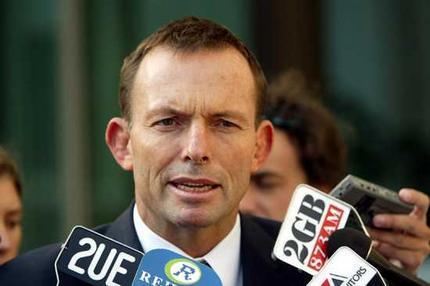A federal coalition government could encourage large businesses to “bid” to use less energy on peak-demand days as a way of reducing future electricity price rises for households.
Climate action spokesman Greg Hunt says a coalition government would limit the rises in power bills by abolishing the carbon and mining taxes as well as looking at incentives for demand reduction.
Mr Hunt acknowledged poles and wires had been “over built” to deal with the relatively few days of extreme energy use each year – for example scorching hot days when everyone runs air-conditioning.
“(But) you don’t have to gold-plate, as it’s described, if you build in the capacity to reduce demand on those days by striking agreements with large energy consumers (such as) supermarkets, which can power-down their large refrigeration units on hot days and then do the cooling later on at night,” he told ABC TV on Wednesday.
“Demand reduction bidding is an incredibly effective means of reducing the pressure on capital expenditure.”
Mr Hunt said such bidding would require a change to the current regulatory regime and met with a major energy company last week to discuss such a mechanism.
Their view was that demand reduction could have a “double benefit” with positive outcomes for providers and consumers.
Mr Hunt noted that demand reduction had been implemented very successfully in Western Australia but it hadn’t been introduced to the eastern seaboard.
He also confirmed on Wednesday night that a coalition government “would merge the departments of climate change and environment”.
It was revealed earlier in the day that NSW electricity prices are set to rise by an average of 18 per cent from July 1.
The state’s pricing regulator blames the carbon tax for half of the increase and the continuing escalation in network costs for the other nine per cent.



